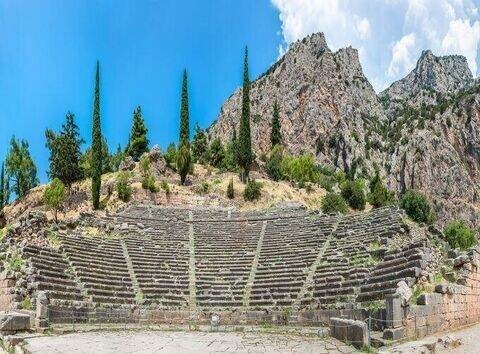
Greece Weather in November Complete Travel Climate Guide
November marks the transition from autumn to winter in Greece, bringing cooler temperatures, fewer tourists, and excellent opportunities for cultural travel. While summer is known for beaches and island crowds, November offers a calmer, more authentic side of Greece that many travelers truly appreciate.
If you are planning Greece sightseeing tours, a peaceful holiday, or even a romantic honeymoon vacation, understanding Greece’s weather in November will help you plan wisely.
What Is the Weather Like in Greece in November?
November weather in Greece is mild and comfortable, especially compared to northern Europe.
Average temperatures:
- Athens: 12°C – 18°C
- Thessaloniki: 10°C – 16°C
- Crete: 14°C – 20°C
- Greek islands: 13°C – 18°C
Rainfall increases slightly, but many days remain sunny and pleasant for outdoor sightseeing.
Is November a Good Time to Visit Greece?
Yes, November is excellent for travelers who prefer peaceful exploration over beach crowds.
It is ideal for:
- Cultural sightseeing
- City exploration
- Museum visits
- Food experiences
- Budget travel
- Relaxed holiday atmosphere
Beach swimming is limited, but the cooler climate is perfect for walking tours in Athens and historical sites.
Best Places to Visit in Greece in November
Athens
Explore the Acropolis, Plaka, museums, and ancient ruins comfortably without summer heat or crowds.
Thessaloniki
A lively cultural city with vibrant food scenes, historic churches, and seaside promenades.
Crete
The warmest region in November, offering mild weather, coastal walks, and historic towns like Chania.
Meteora
Enjoy breathtaking monasteries surrounded by autumn landscapes.
Delphi
Visit ancient ruins with cool temperatures and dramatic mountain views.
What to Pack for Greece in November
Pack light layers for changing conditions:
- Light jacket or coat
- Long-sleeve shirts and sweaters
- Comfortable walking shoes
- Umbrella or rain jacket
- Scarf for evenings
This packing style ensures comfort during daytime sightseeing and cooler nights.
Travel Costs and Vacation Packages in November
November is considered a shoulder season, meaning prices drop after summer.
Benefits include:
- Lower flight prices
- Discounted hotels
- Affordable tours
- Special holiday packages
- Cheaper domestic transportation
Many travel agencies offer cultural tours and city-based travel packages at excellent value.
Transportation and Services in November
- Domestic flights operate normally
- Ferries run but less frequently
- Tourist buses continue in major cities
- Attractions remain open
Organized tours adjust schedules to seasonal conditions, making transportation easier.
Is November Suitable for Honeymoon Vacations?
Yes, especially for couples seeking privacy and romance.
Advantages:
- Quiet hotels
- Romantic restaurants
- Fewer tourists
- Discounted luxury accommodations
- Cozy sightseeing experiences
Athens, Crete, and Santorini offer attractive honeymoon vacation packages during this time.
Greece Weather in November Compared to Other Months
|
Month |
Temperature |
Crowds |
Cost |
|
November |
Mild |
Low |
Low |
|
April |
Mild |
Moderate |
Medium |
|
July |
Hot |
Very high |
High |
|
January |
Cool |
Very low |
Lowest |
November offers a balance of pleasant weather and affordable travel.
Travel Tips for Greece in November
- Focus on mainland destinations
- Choose city hotels
- Check ferry schedules early
- Book tours in advance
- Enjoy indoor attractions
- Taste seasonal Greek dishes
These tips help you maximize comfort and value.
Final Thoughts
Greece weather in November is mild, peaceful, and perfect for cultural exploration. Without summer crowds, you can enjoy ancient landmarks, museums, and charming cities at a relaxed pace.
Whether you are planning sightseeing tours, a Greece budget-friendly holiday, cultural travel experience, or a quiet honeymoon vacation, November offers excellent weather, affordable prices, and unforgettable authenticity.

Frequently Asked Questions
- Is November cold in Greece?
No, temperatures are mild and comfortable, especially in southern regions like Crete and Athens, making sightseeing pleasant.
- Can I swim in Greece in November?
Swimming is possible in Crete and southern islands, but the sea is cooler and most travelers focus on sightseeing instead.
- Is November a cheap time to visit Greece?
Yes, flights, hotels, tours, and vacation packages are cheaper compared to summer peak season.
- Are Greek islands open in November?
Major islands remain open, but smaller islands may have limited services and reduced ferry schedules.
- Is November good for honeymoon vacations?
Yes, couples enjoy peaceful cities, romantic dining, discounted luxury hotels, and private sightseeing experiences during November.



